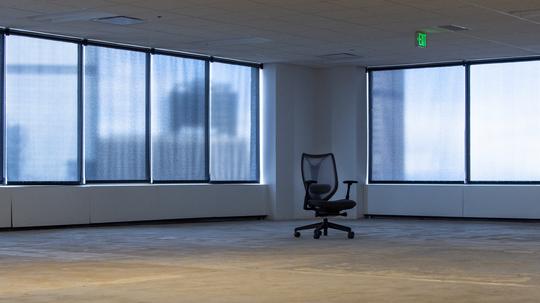
Investors are pulling back from technology startups after record amounts of capital flooded company reserves last year.
Meta Platforms Inc., the parent company of Facebook, is preparing employees for "the worst downturn that we’ve seen in recent history,” according to The New York Times. Netflix Inc. is cutting hundreds of jobs. Carvana cut 2,500 employees from its payroll.
The shift in capital markets is causing startup executives to trim their operations, leading to mass layoffs and slower growth projections. Atlanta companies are also taking a hit.
Why are the layoffs happening?
Tech investors are trading a growth mindset for a focus on profitability. That profitability focus has decreased company valuations, which were based on projections rather than actual revenue.
This comes as the U.S. Federal Reserve is hiking interest rates to curb rapid inflation.
Startups are less likely to raise money if their valuations have dipped since they last pitched to investors. Plus, high interest rates have made borrowing capital more expensive.
Because of this constriction in capital, executives are having to rethink their business plans to align with investors’ newfound conservatism. That means laying off employees to cut operating costs.
Which Atlanta startups have laid off employees?
One of Atlanta’s largest and fastest-growing startups, OneTrust LLC, laid off 950 employees, which equals a fourth of its workforce.
The data privacy and security startup became a global company within five years, a rapid growth trajectory that was often seen as an example of Atlanta’s rapid emergence into a national tech hub.
OneTrust is the biggest example of how the capital market shift is affecting the Atlanta tech economy. Restaurant QR code startup Sunday also laid off an undisclosed number of employees less than a year after it launched with $124 million in investments. Marketing tech startup Terminus, once considered a future unicorn, and rapidly growing Sonar Software, also cut their staff.
Supply chain tech unicorn Stord laid off 9% of its more than 700 employees, though a spokesperson said it was not because of financial strains.
How else are startups reacting to market conditions?
In addition to laying off employees, startups may cut other operating costs.
For example, Sunday is narrowing its geographical focus to the United States, the United Kingdom and France, said CEO Christine de Wendel. Previously, the startup had also planned to grow in Canada and other markets.
Sunday is also focusing on its core product — financial software that allows restaurant guests to pay via a QR code — rather than innovating additional platforms.
Are any startups still growing?
There hasn’t been a complete halt of venture capital coming into Atlanta. And the companies that laid off employees aren’t necessarily in danger of failing. The layoffs are a way for startups to weather the economic storm, startup executives say.
Within the past month, Florence Healthcare raised $27 million and plans to hire 100 employees by the end of the year. Food waste management startup Goodr raised $8 million, and cybersecurity startup DefenseStorm raised $15 million.
How does this compare with Atlanta’s tech ecosystem last year?
Before the economic downturn, startups sought venture capital to grow as fast as possible within their market. That often meant operating at a loss and using outside investments to fund growth.
In that climate, five Atlanta companies reached $1 billion valuations, a record for a city that previously only boasted a few unicorns. About $4 billion poured into Georgia startups, double the previous venture capital record. New, early-stage venture capital firms formed to fight the city’s reputation as a desert of capital sources.
How are the economic conditions affecting corporate expansions into Atlanta?
It doesn’t seem the capital market shift decreased corporate interest in Atlanta tech offices.
On July 7, consulting giant McKinsey & Co. said it is bringing 700 tech jobs to the city and opening a second office focused on innovation.
In May, semiconductor giant Intel Corp. (Nasdaq: INTC) went on an Atlanta hiring spree as it plans to add 500 local jobs. Intel says Atlanta won’t be affected by the hiring freeze it later announced. Amazon.com Inc. (Nasdaq: AMZN) is also hiring 500 in Atlanta to work on its new music app.
What are Atlanta investors saying?
The downturn may also cause small venture capital funds to fold, said Silicon Road Ventures Managing Partner Sid Mookerji.
“People are going to be a lot more conservative,” Mookerji told Atlanta Inno.
Sig Mosley, an investor known as Atlanta’s godfather of angel investing, doesn’t see this downturn being as steep as the 2001 dot-com bust or the 2007 Great Recession. But startups need to increase their revenue to make it through the storm.
How will Atlanta fare compare to other markets?
Atlanta is known for having diverse industries within the startup sector, including cybersecurity, health tech, supply chain tech and financial tech. That diversity creates a more resilient Georgia economy, said Technology Association of Georgia President Larry Williams.








